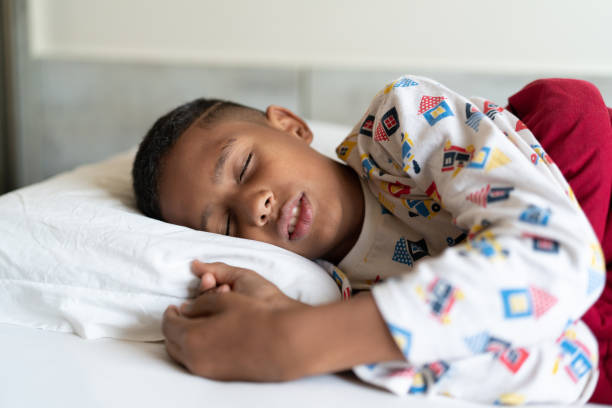- Empty cart.
- Continue Shopping
How to Recognize and Address Night Sweats in Children

Night sweats in children can be a concerning symptom for parents, often leading to worry about the underlying cause. While night sweats can sometimes be attributed to a warm sleeping environment or certain types of bedding, they may also be a sign of a medical issue that requires attention.
Recognizing Night Sweats
Symptoms
- Excessive Sweating: The child wakes up with damp or soaked clothing and bedding.
- Restlessness: The child may appear restless or uncomfortable during sleep.
- Fluctuating Body Temperature: The child may feel hot to the touch, even in a cool room.
Frequency
Occasional night sweats may not be a cause for concern, but if they occur regularly or are accompanied by other symptoms, it’s advisable to consult a healthcare provider.
Common Causes
Environmental Factors
- Room Temperature: A room that’s too warm can lead to night sweats.
- Bedding: Synthetic materials may not breathe well, contributing to overheating.
Medical Conditions
- Infections: Conditions like the common cold or more serious infections can cause night sweats.
- Hormonal Imbalances: Though rare in children, hormonal issues can lead to night sweats.
- Medications: Certain medications, like antibiotics or antipyretics, can cause sweating as a side effect.
Addressing the Issue
Environmental Adjustments
- Cool the Room: Use a fan or air conditioner to maintain a comfortable room temperature.
- Change Bedding: Opt for breathable, natural fibers like cotton for sheets and pajamas.
Medical Consultation
- Pediatrician Visit: If night sweats persist or are accompanied by other symptoms, consult a pediatrician for a thorough evaluation.
- Diagnostic Tests: The healthcare provider may recommend tests like blood work or imaging studies to rule out underlying conditions.
Treatment
- Underlying Conditions: If a medical issue is identified, treating the underlying condition should alleviate the night sweats.
- Medication Review: If the child is on medication, consult the healthcare provider about potential side effects and alternatives.
When to Seek Immediate Help
Seek immediate medical attention if night sweats are accompanied by:
- High fever
- Unexplained weight loss
- Persistent cough
- Breathing difficulties
In conclusion, night sweats in children can be unsettling, but understanding the potential causes and knowing when to seek professional help can guide you in managing this symptom effectively. Start by making environmental adjustments and monitoring for other symptoms. If night sweats persist or worsen, consult a healthcare provider for a comprehensive evaluation and treatment plan tailored to your child’s needs.








